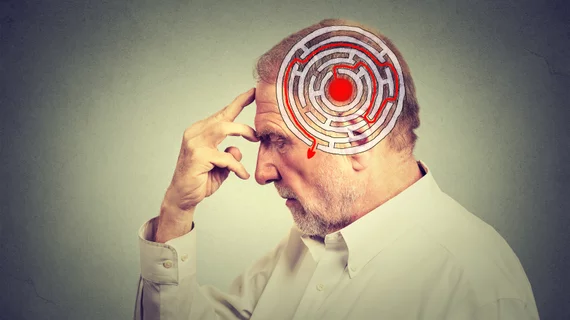Lightning-fast AI detects disease in CT scans faster than radiologists
Researchers have developed an artificial intelligence (AI) platform that can detect acute neurologic events in CT images in just 1.2 seconds, according to a new study published in Nature Medicine.
The authors trained a 3D convolutional neural network with a clinical radiology dataset of more than 37,000 head CT exams. The end result is a system that could diagnose neurological illnesses such as stroke or hemorrhage faster than any radiologist, alerting specialists when an issue is detected.
“With a total processing and interpretation time of 1.2 seconds, such a triage system can alert physicians to a critical finding that may otherwise remain in a queue for minutes to hours,” senior author Eric Oermann, MD, instructor in the department of neurosurgery at the Icahn School of Medicine at Mount Sinai in New York, said in a prepared statement. “We're executing on the vision to develop artificial intelligence in medicine that will solve clinical problems and improve patient care.”
On average, the AI was able to preprocess an image, read it and alert a radiologist—when necessary—approximately 150 times faster than it would take a physician to interpret the exam. The authors noted that their research on this platform is far from over. The next step involves moving from “weakly supervised learning approaches” to “strongly supervised learning approaches,” which should be done “within the next two years.”
“The application of deep learning and computer vision techniques to radiological imaging is a clear imperative for 21st century medical care,” study author Burton Drayer, MD, CEO of the Mount Sinai Doctors Faculty Practice and dean for clinical affairs of the Icahn School of Medicine, said in the same statement.

